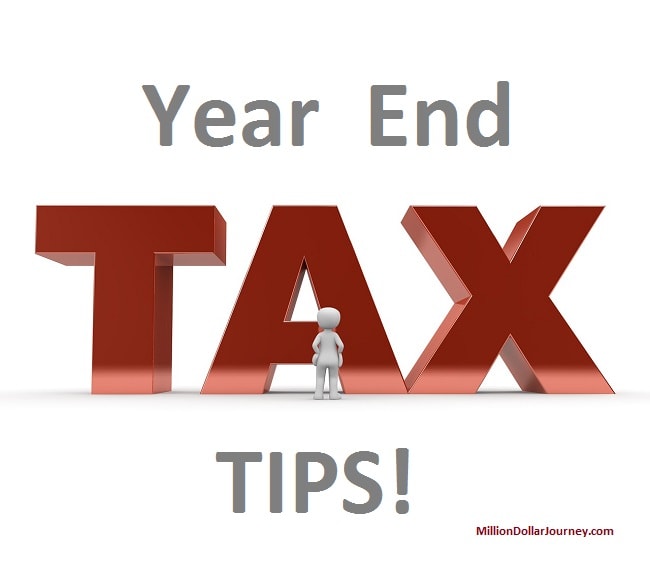
This article originally was published in 2007 (!) but adjusted for relevant details annually. I’m a bit late posting it this year, so pay particular attention to the tax loss selling tip as the deadline is fast approaching.
It’s that time of year again. I’m not talking about Christmas, I’m talking about the year end coming up for personal income taxes. Personal taxes is probably the last thing on your mind, but it’s likely your biggest expense! In the spirit of reducing expenses, here are some year end tax strategies to consider.
Year end tax tips:
- Tax Loss Selling. If you have taxable capital gains this year in your non-registered account, you may want to sell some of your losing stocks. Why? The realized losses will offset your gains, thus reducing your taxable amount. Capital losses can also be carried back against capital gains accrued in the previous 3 years and carried forward indefinitely. Make sure you do this by December 23th though as it takes 3 business days to settle your trade.
- Frequent Trading Record Keeping – If you frequently trade in a non-registered account (I have a fun trading non-reg account), you are responsible for tracking your capital gains and losses. This can get tricky if you frequently buy/sell partial positions as you’ll need to track your adjusted cost base. You can do this manually, but in more complicated cases you can use an online app like adjustedcostbase.ca. I started using it this year, and it seems to work well.
- Be Patient when Taking Stock Profits. If you want to take profits in a stock (in a taxable account), wait until the new year. That way, you’ll have a year of tax deferral.
- Charitable Donations. You have until Dec 31 to make your charitable donations in order for it to count under the current tax year. Also when you file your taxes, make sure you file all the donations under one person. Here is an article on how the donation tax credit works.
- Donate Stock instead of Cash to Charities. It may be a bit late for this now because of processing time, but if you donate stock to a charity instead of cash you’ll get tax bonuses. The tax regulations now state that stock donated to a charity will not face any capital gains taxes AND the contributor will receive a tax receipt for the amount donated. Check out my article on “Charitable Donation Tax Credit Strategies” for more information on how to maximize this tax rule.
- Organize your Paper Work. If you are diligent with organizing your tax paperwork, it’s soon time to separate your current year receipts/paperwork from the upcoming year. What I typically do is clear out the filing cabinet at the end of the year and put all tax paperwork into large envelopes. This comes in handy when filing income taxes before the income tax deadline in April.
- Moving your TFSA – If you are considering moving your TFSA to another institution, December is a great time to do it. Why? Say you have a TFSA with a high interest rate savings account, but you’re now looking to move the money into a low cost trading account. The drawback is that there could be fees associated with transferring funds directly from one institution to another. In addition, if you contribute to a TFSA then withdraw and redeposit the funds in the same year, you could possibly over contribute and face hefty penalties. To avoid the dreaded fees and over contribution rules, simply withdraw the funds from the institution in December to maximize interest gains then wait until the new year to deposit the funds into a trading account. Problem solved!
- Private Corporation Dividends – For you business owners out there, if you expect to have a personal tax refund this year, you may want to pay yourself a dividend to as a way to pull money out of the company without paying personal tax out of pocket. We pay enough out of the company to reduce our personal tax refund to close to $0. Alternatively, if a dividend would result in personal tax payable, consider holding off until January as you would have another full year before paying the taxes due.
Do you have any tax tips? Please share in the comments!
|
















